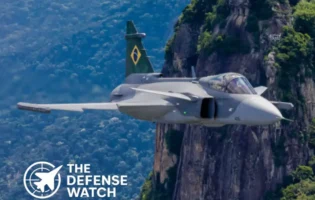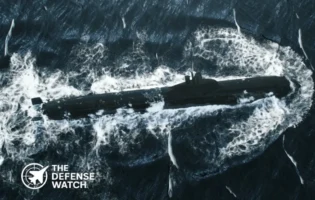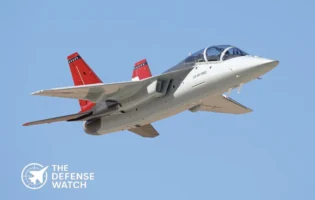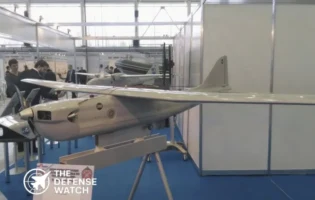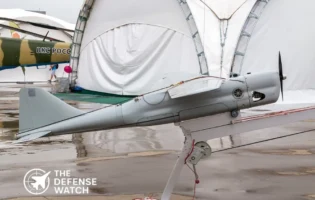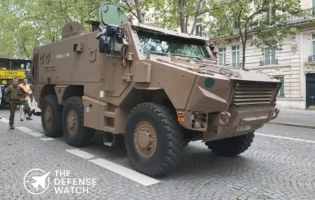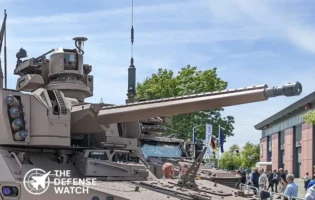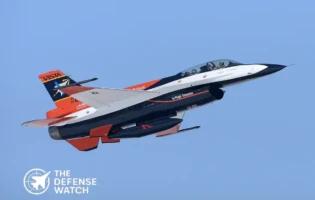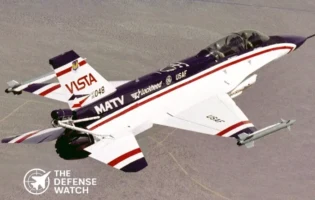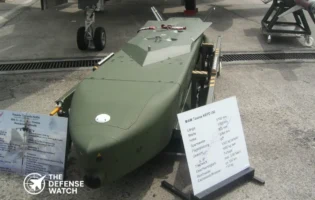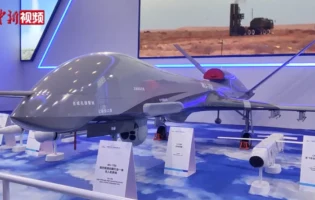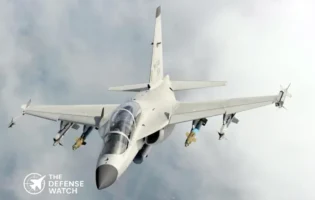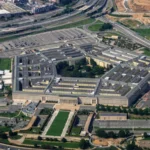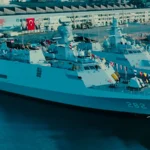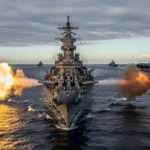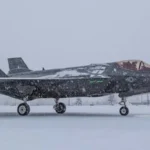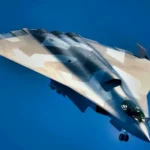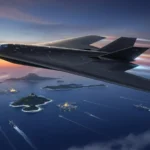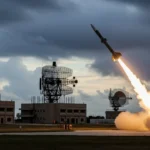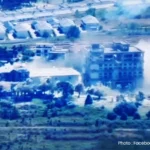- Home
- Catalog
- Fighter Jets
- Gripen E Fighter Jet
Gripen E Fighter Jet

Full Specifications
General Information
| Name | JAS 39E Gripen (Gripen E) |
| Manufacturer | Saab AB |
| Country of Origin | Sweden |
| Type / Role | Multirole Fighter Jet |
| Generation | 4.5 |
| Status | In Production / Active Service |
| First Flight | June 15, 2017 |
| Introduction / In Service Since | 2023 |
| Number Built | 60+ (Orders in progress) |
| Operators | Sweden, Brazil |
Dimensions & Structure
| Length | 15.2 m (49.8 ft) |
| Wingspan | 8.6 m (28.2 ft) |
| Height | 4.5 m (14.7 ft) |
| Wing Area | 30 m² |
| Empty Weight | 8,000 kg |
| Maximum Takeoff Weight (MTOW) | 16,500 kg |
| Internal Weapons Bay | None |
| External Hardpoints | 10 |
Performance
| Maximum Speed | Mach 2.0 |
| Range | 1,600 km |
| Combat Radius | 800 km |
| Service Ceiling | 50,000 ft (15,240 m) |
| Rate of Climb | 15,000 m/min |
| Thrust-to-Weight Ratio | 0.97 |
| G Limits | +9 / -3 |
Powerplant
| Engine Type | GE F414G afterburning turbofan |
| No. of Engines | 1 |
| Thrust (each) | 22,000 lbf (98 kN) |
| Thrust Vectoring | No |
| Fuel Capacity | 3,400 kg (internal) |
Armament
| Gun | 27 mm Mauser BK-27 cannon |
| Missiles (Air-to-Air) | Meteor, IRIS-T, AIM-9, AIM-120 AMRAAM |
| Missiles (Air-to-Ground) | RBS-15, AGM-65 Maverick |
| Bombs | Paveway II/III, JDAM, Mk 82/83/84 |
| Hardpoints | 10 |
| Payload Capacity | 6,000 kg (13,200 lb) |
Avionics & Systems
| Radar | Selex ES Raven ES-05 AESA |
| Radar Range | 160+ km |
| Electronic Warfare (EW) System | Saab Arexis Integrated EW Suite |
| Targeting System | IRST + Litening Targeting Pod |
| Helmet Display | Targo II HMD |
| Navigation | GPS/INS Hybrid |
| Autopilot / AI Assistance | Yes (Advanced Digital Flight Control) |
| Communication | Link 16, Secure Datalink, SATCOM |
Stealth & Technology
| Radar Cross Section (RCS) | Reduced, non-stealth (~1 m² class) |
| Stealth Features | Radar-absorbent materials and design |
| Infrared Signature Reduction | Yes |
| Sensor Fusion | Full 360° sensor fusion system |
| Networking Capabilities | Network-Centric Warfare, Link 16, SwAF Data Link |
Variants
| Special Export Versions | Brazilian Gripen F with local avionics |
Operational History
| Major Conflicts / Deployments | None (peace-time operational) |
| Notable Operators | Sweden, Brazil |
| Combat Proven? | Not yet |
| Mission Types | Air Superiority, Strike, Reconnaissance, Maritime Patrol |
Cost & Program
| Unit Cost | $85 million (approximate) |
| Development Cost | $2+ billion |
| Program Name | Gripen E/F Program |
| Funding Countries | Sweden, Brazil |
Additional Information
| Upgrades Planned | Enhanced EW, AI-assisted avionics, new weapon integration |
| Future Replacement | Swedish next-generation stealth fighter (FCAS concept) |
| Export Restrictions | Moderate |
| Notable Achievements | Lowest operational cost in 4.5-gen class |
| Competitors | Dassault Rafale, F-16V, Tejas Mk1A, JAS 39C/D |
PROS
- Advanced AESA radar and EW suite
- Excellent agility and short takeoff capability
- Cost-effective operations and maintenance
- Open architecture for upgrades
- Compatible with NATO-standard weapons
CONS
- Limited internal fuel compared to heavier fighters
- No stealth shaping (non-stealth airframe)
- Single-engine configuration limits redundancy
- Smaller payload capacity
- Limited combat history
Gripen E: Sweden’s Next-Generation Multirole Fighter
Developed by Saab AB, the Gripen E represents Sweden’s evolution in lightweight multirole combat aircraft, designed to meet modern air defense challenges with precision, flexibility, and cost-efficiency. Building upon the proven Gripen C/D platform, the E variant incorporates next-generation sensors, electronic warfare capabilities, and network-centric warfare integration to compete with advanced global fighters like the F-16V and Rafale.
Equipped with the powerful General Electric F414G engine, the Gripen E achieves a top speed of Mach 2 and a combat radius exceeding 800 km, making it ideal for both defensive and offensive missions. It features Saab’s PS-05/A Mk4 AESA radar, an infrared search and track (IRST) system, and an integrated electronic warfare suite, enabling superior situational awareness and survivability in contested environments.
The aircraft’s modular design supports a broad range of munitions — including Meteor beyond-visual-range air-to-air missiles, IRIS-T, and precision-guided bombs — across 10 external hardpoints. Its digital cockpit with wide-area displays and AI-assisted systems streamlines pilot workload during complex operations.
The Gripen E is currently in service with Sweden and Brazil, offering nations a capable yet cost-effective alternative to heavier, more expensive fifth-generation fighters.
Gripen E Fighter Jet Price in US
The estimated unit cost of the Saab Gripen E is approximately $85 million, depending on configuration and export agreements. Its lifecycle cost remains significantly lower than comparable Western fighters, making it attractive for nations seeking modern airpower on a moderate defense budget.
Reviews
Disclaimer Note
The information provided on TheDefenseWatch.com is for general informational purposes only. While we strive to ensure the accuracy, completeness, and timeliness of our content regarding defense and aerospace products, technologies, and specifications, we cannot guarantee that all information is 100% accurate or up-to-date due to the evolving nature of military technology and classified data. TheDefenseWatch.com does not warrant the reliability, suitability, or availability of the information for any specific purpose. Users are advised to consult official sources, such as manufacturers, government publications, or defense agencies, for precise and verified data before making decisions based on our content. We are not affiliated with any defense manufacturers, governments, or military organizations mentioned. Opinions, reviews, and ratings reflect expert analysis but are subjective and should not be considered endorsements. TheDefenseWatch.com is not responsible for any errors, omissions, or consequences arising from the use of this website’s content. External links are provided for convenience and do not imply endorsement. TheDefenseWatch.com reserves the right to update or modify content without prior notice. By using this website, you agree to our Privacy & Cookies Policy.

